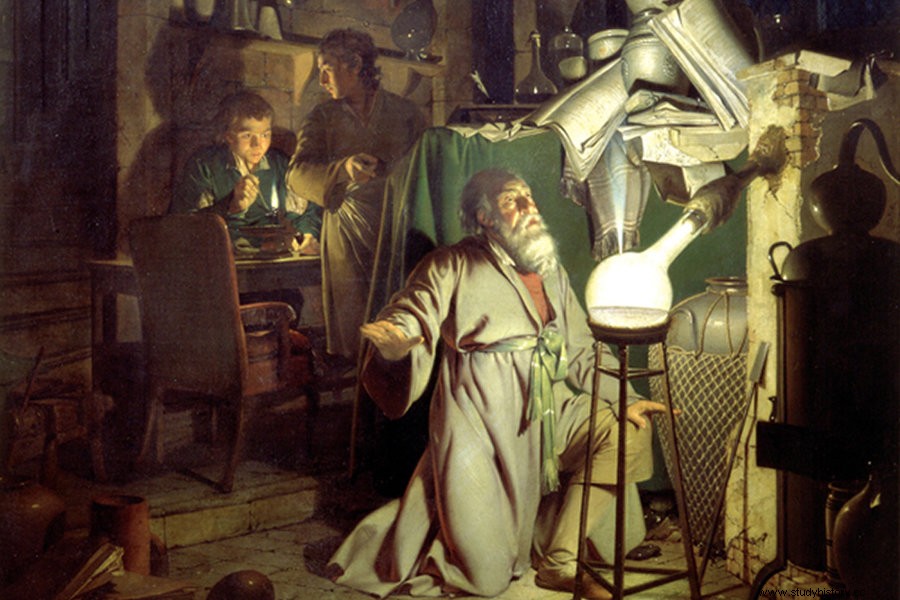We are located in Hamburg (Germany) in the year 1675 and we find a merchant named Hennig Brand . He was not an eminence in business but, due to his wife's dowry, he had enough money to devote his time to the noble art of "alchemy". The alchemists (now they would be a mixture of chemists and geeks) were looking for "the philosopher's stone" that would allow them to turn metals into gold. But Brand went a little further, he intended to obtain gold by processing urine.
The fact is that he got down to work (?), He collected 50 buckets of human urine and was treating them in the basement of his house. Sift, mix, dissolve, heat... for months he was manipulating urine with all the processes that an alchemist of the time could know. After treating him, nothing like gold, just a white, translucent substance.

The Alchemist in Search of the Philosopher's Stone (1771) – Joseph Wright
Disillusioned and exhausted, he blew out the candle that lit the basement and... the strange substance glowed! He ran out into the street to see that strange substance in daylight and, when exposed to the air, it began to burn spontaneously... it was phosphorus ("bearer of light", from the Latin phosphorus and this from the Greek phosphoros , formed with phos "light" and the suffix phoros "carrier"). Although he tried to keep his discovery a secret, his ego prevented him. Many were interested in this new element, but production using Brand's method made it more expensive than gold. He tried, to reduce costs, to use the urine of the soldiers, but it was not profitable either. We would have to wait until 1750 when the Swedish Carl Scheele devised a method of obtaining phosphorus from bones (although most of the phosphorus in the body is found in the bones and teeth, it constitutes 1% of our body weight).
